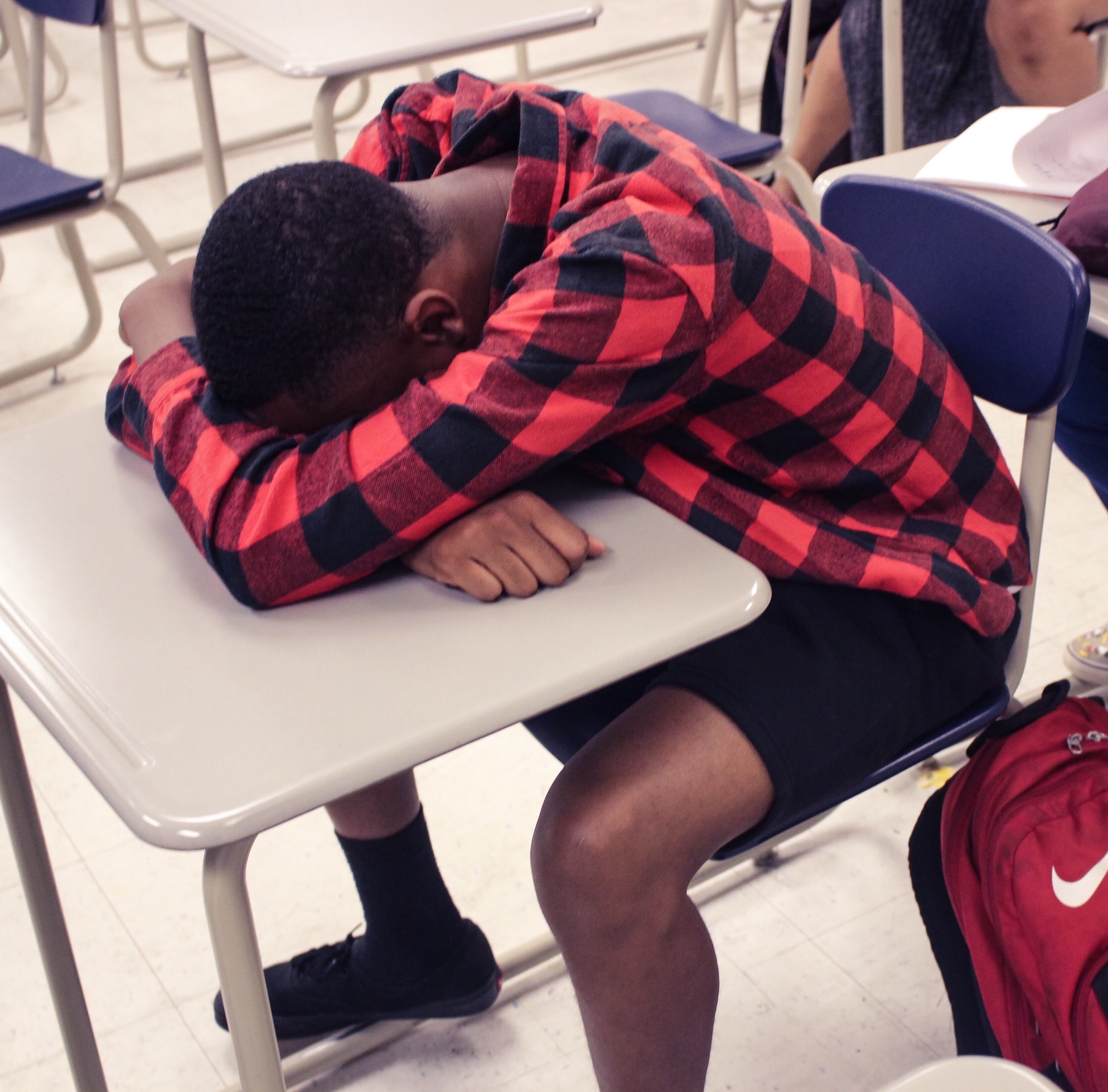 Teenagers need 8 to 10 hours of sleep each night to be at their best, but few get anywhere near that amount. That’s often due to factors outside their control, like school hours and homework levels.
Teenagers need 8 to 10 hours of sleep each night to be at their best, but few get anywhere near that amount. That’s often due to factors outside their control, like school hours and homework levels.
Many schools have been taking notice — and making changes to promote teen sleep.
In place of a traditional schedule, in which students attend every class every day, block schedules are a way to modify class frequency and duration. For example, students may attend half of their classes one day and the other half of their classes the following day, but have longer class periods. With a block schedule, “homework workload may not decrease in terms of hours… but it will decrease in terms of how many subjects you have to hit each night,” says Denise Pope, co-founder of Challenge Success, an organization that advises schools, students, and parents about more effective approaches to education that incorporate student well-being. While students still have the same amount of homework, focusing on fewer subjects “is better from a brain-efficiency standpoint,” she says.
Two schools that have worked with Challenge Success and subsequently moved to block schedules are Burlingame Intermediate School, a public school in Burlingame, CA, and Notre Dame High School, a parochial school in Belmont, CA.
Reducing students’ workload
Another option Challenge Success recommends is re-evaluating overall homework levels, which can include capping the number of Advanced Placement (AP) and honors classes that students take. It’s an option that’s increasingly being instituted at many schools, including Beckman High School, a public school in Irvine, CA, which limits freshmen to two AP or honors classes and allows one additional class each year. Students who wish to add another advanced-level class must sign a waiver (as must their parents).
Limiting sports practices
At Biddeford High School, a public school in Biddeford, ME, the focus on teen sleep included restricting morning and evening sports and extracurriculars.
“During the school year, all morning practices are off limits,” says Jeremy Ray, district superintendent. (Previously, swimming and ice hockey had practices as early as 5 am.)
Evening practices now have a 9 pm ending time, although occasionally games end later than that when travel time is factored in, Ray acknowledges.
Using schedule simulators
At Woodson High School, a public school in Fairfax, VA, student programmers launched an online schedule simulator in 2017 that allows students to estimate their total time commitments for school-related activities. The simulator was based on data gathered by polling teachers and students and includes classes, sports, and school clubs.
Shadowing students
As part of the planning process, some teachers even opt to spend an entire school day experiencing what it’s like from a student’s perspective. These “shadow days” can be a good reality check, Pope and her co-authors note in their 2015 book, Overloaded and Underprepared: Strategies for Stronger Schools and Healthy, Successful Kids.
Sharing information about teen sleep
Regardless of which strategies schools use, there’s an additional approach that can help set the stage for success: educating teens and the broader community about the importance of sleep.
One initiative, Sleep 101, was first rolled out at the college level and is now being expanded to middle and high schools. It’s available for free via Let’s Sleep and was designed so that teachers can integrate it with each state’s health curriculum, notes Pallas Ziporyn, project manager.
Next steps
For parents
Inquire about the guidelines your teen’s school has in place to address workload issues like teen stress and teen sleep. For resources, including a time-scheduling worksheet, visit Challenge Success’s resources page.
For teachers and administrators
Read about effective homework and how to manage student workloads in Challenge Success’ blog, Effective Homework Practices During COVID and Beyond. For more information about incorporating information about teen sleep into school activities and classroom instruction, visit Let’s Sleep.
Excerpted from “How Schools Can Help Overloaded Teens” in The 74. Read the full article online.
Source: The 74 | How Schools Can Help Overloaded Teens, https://www.the74million.org/article/how-schools-can-help-overloaded-teens | Copyright 2023 The 74 Media, Inc
If you have concerns about your child or teen, CHC Care Coordinators can arrange a free 30-minute consultation so you can explore options with an expert. We invite you to call or email us at 650.688.3625 or careteam@stage.chconline.org to set up an initial Parent Consultation appointment. CHC teletherapy services are available now.





